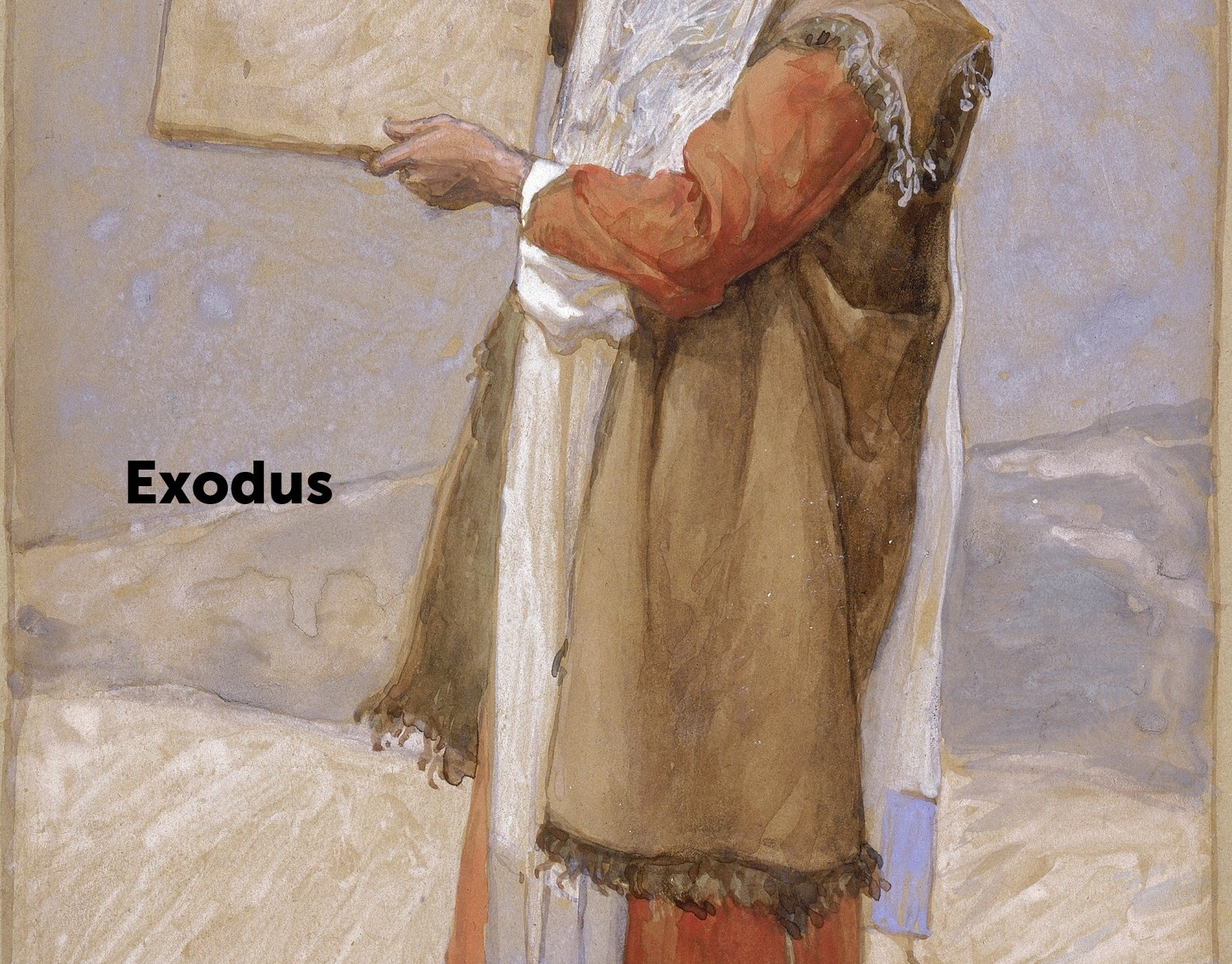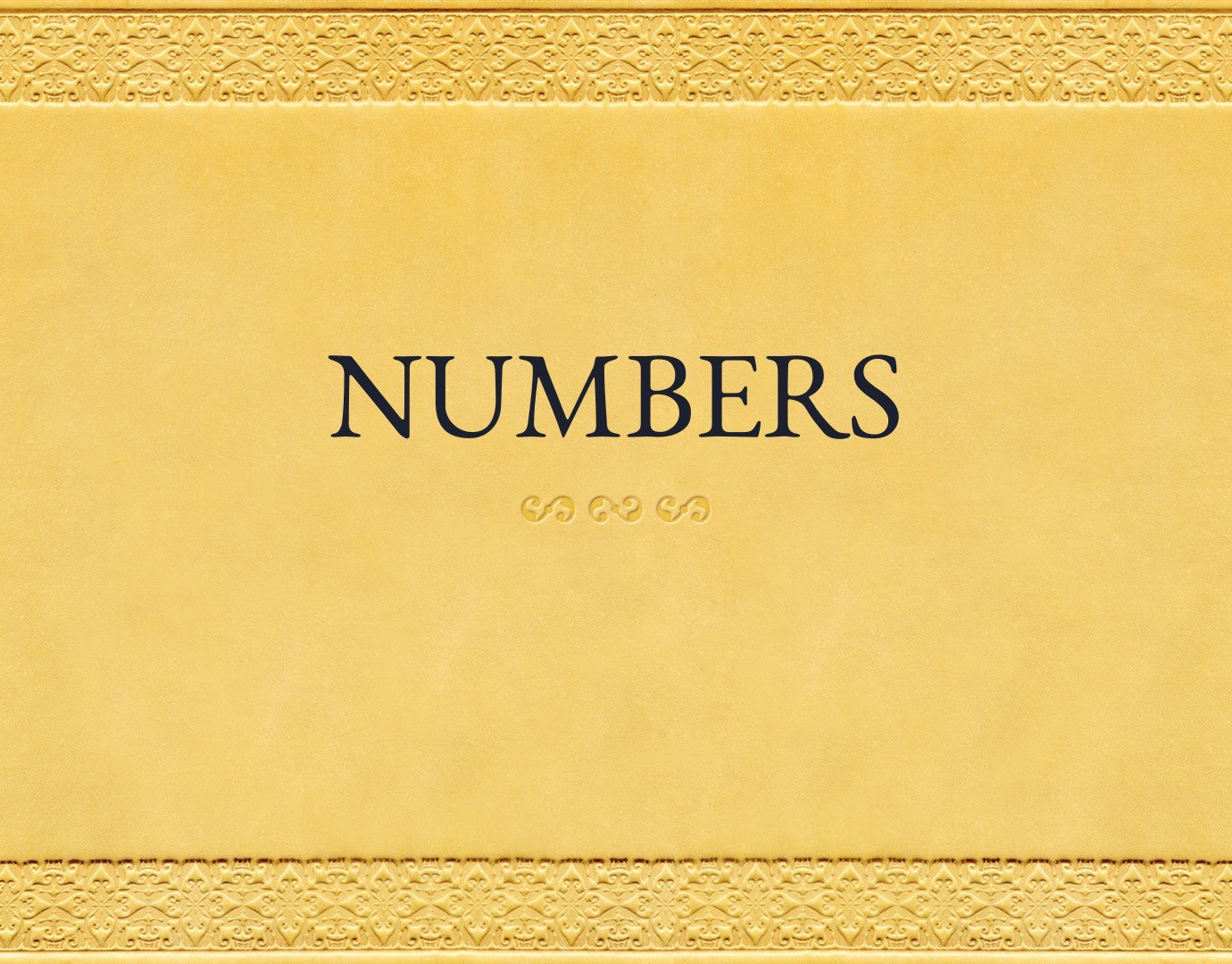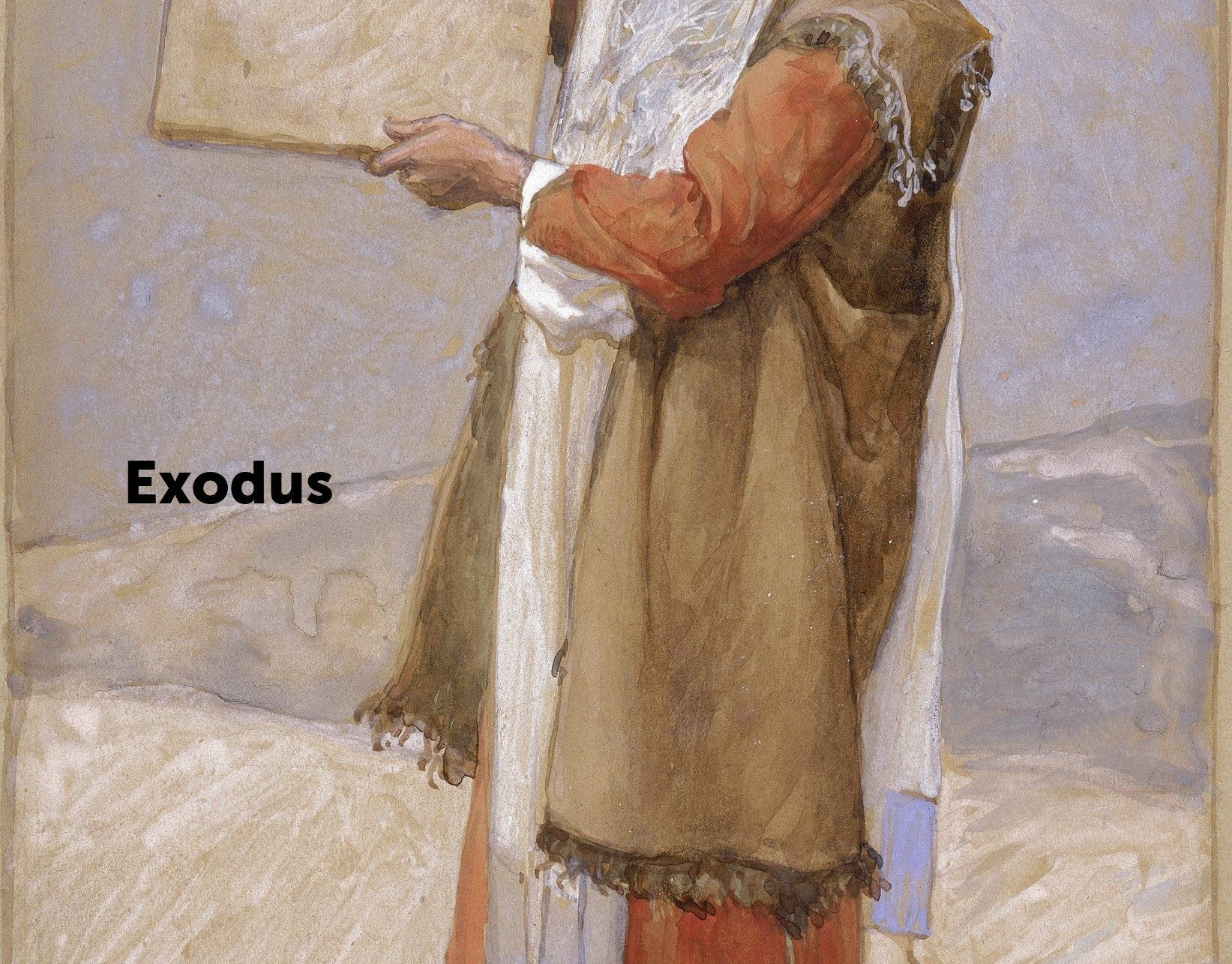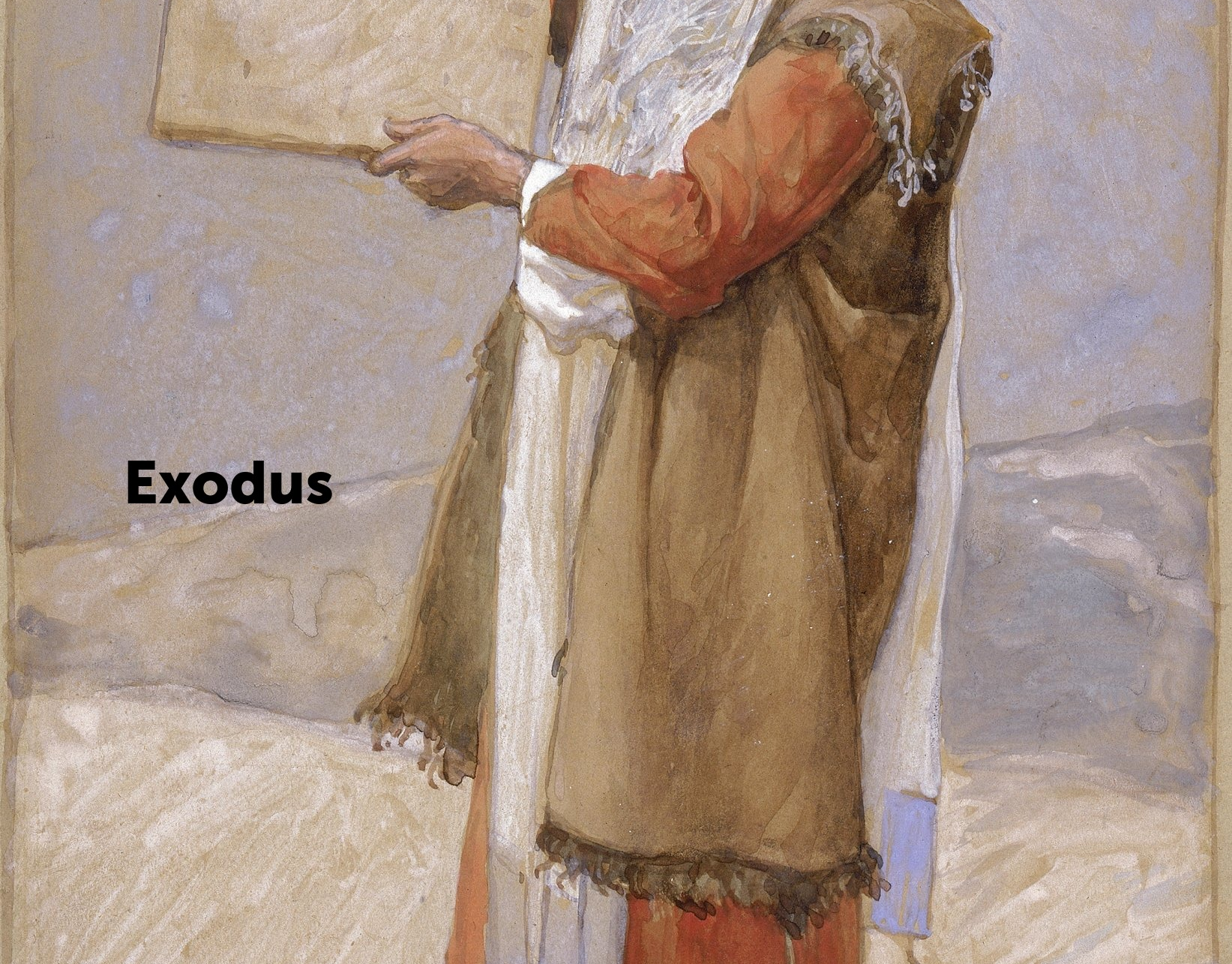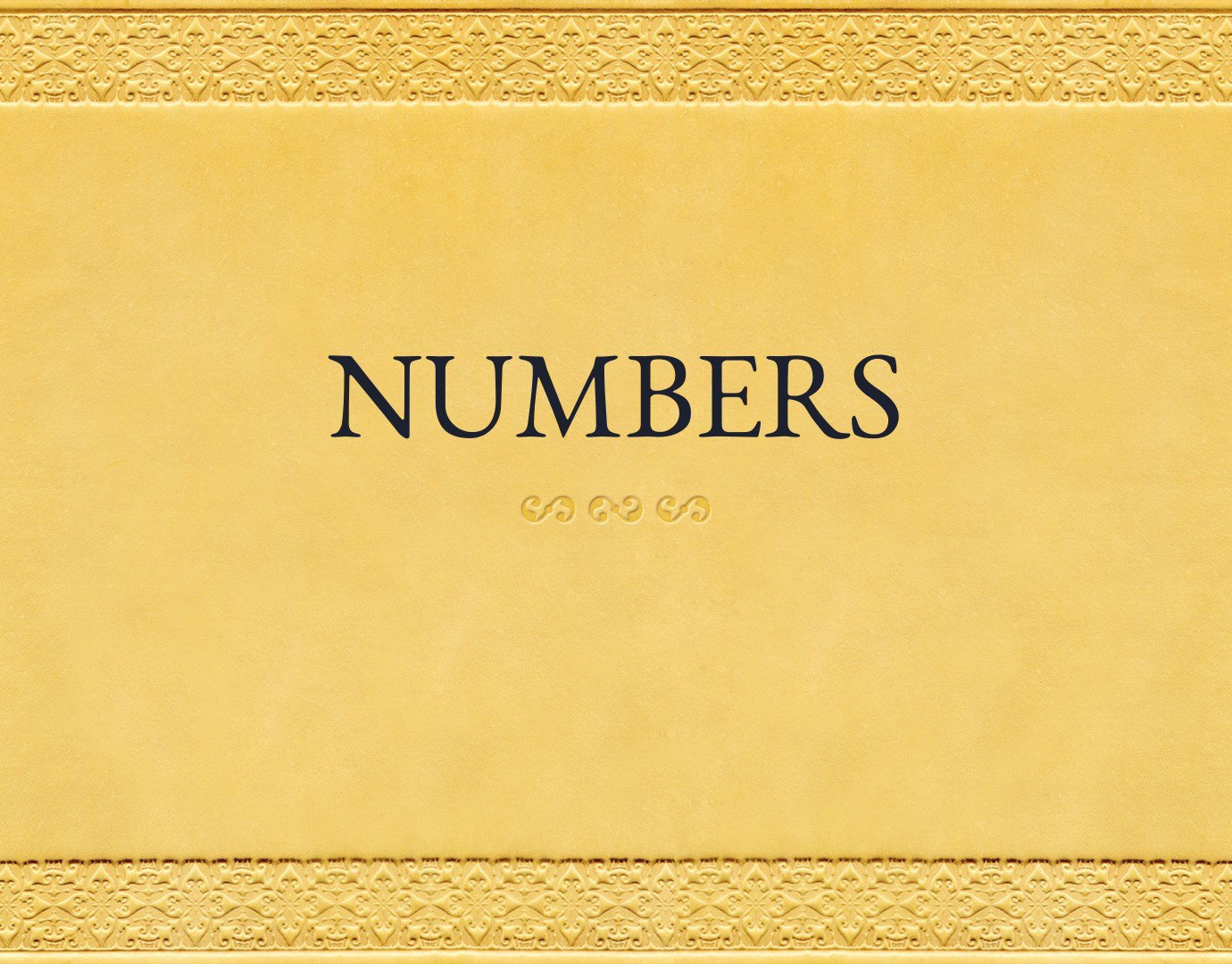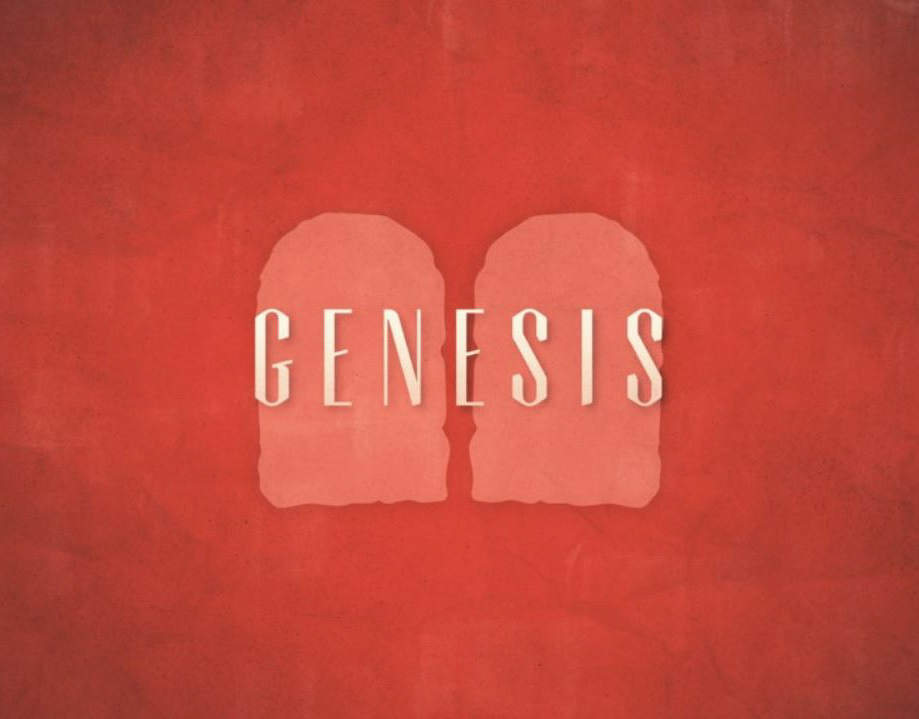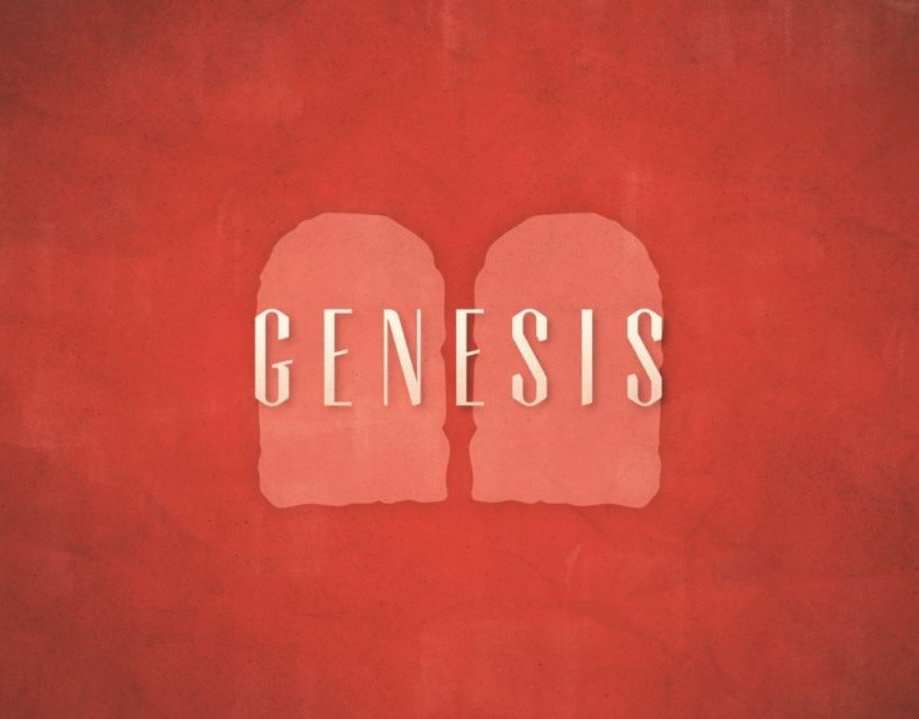Leviticus 10-14
The Death of Nadab and Abihu
10 Now Nadab and Abihu, the sons of Aaron, each took his censer and put fire in it and laid incense on it and offered unauthorized fire before the Lord, which he had not commanded them. 2 And fire came out from before the Lord and consumed them, and they died before the Lord. 3 Then Moses said to Aaron, “This is what the Lord has said: ‘Among those who are near me I will be sanctified, and before all the people I will be glorified.’ ” And Aaron held his peace.
4 And Moses called Mishael and Elzaphan, the sons of Uzziel the uncle of Aaron, and said to them, “Come near; carry your brothers away from the front of the sanctuary and out of the camp.” 5 So they came near and carried them in their coats out of the camp, as Moses had said. 6 And Moses said to Aaron and to Eleazar and Ithamar his sons, “Do not let the hair of your heads hang loose, and do not tear your clothes, lest you die, and wrath come upon all the congregation; but let your brothers, the whole house of Israel, bewail the burning that the Lord has kindled. 7 And do not go outside the entrance of the tent of meeting, lest you die, for the anointing oil of the Lord is upon you.” And they did according to the word of Moses.
8 And the Lord spoke to Aaron, saying, 9 “Drink no wine or strong drink, you or your sons with you, when you go into the tent of meeting, lest you die. It shall be a statute forever throughout your generations. 10 You are to distinguish between the holy and the common, and between the unclean and the clean, 11 and you are to teach the people of Israel all the statutes that the Lord has spoken to them by Moses.”
12 Moses spoke to Aaron and to Eleazar and Ithamar, his surviving sons: “Take the grain offering that is left of the Lord’s food offerings, and eat it unleavened beside the altar, for it is most holy. 13 You shall eat it in a holy place, because it is your due and your sons’ due, from the Lord’s food offerings, for so I am commanded. 14 But the breast that is waved and the thigh that is contributed you shall eat in a clean place, you and your sons and your daughters with you, for they are given as your due and your sons’ due from the sacrifices of the peace offerings of the people of Israel. 15 The thigh that is contributed and the breast that is waved they shall bring with the food offerings of the fat pieces to wave for a wave offering before the Lord, and it shall be yours and your sons’ with you as a due forever, as the Lord has commanded.”
16 Now Moses diligently inquired about the goat of the sin offering, and behold, it was burned up! And he was angry with Eleazar and Ithamar, the surviving sons of Aaron, saying, 17 “Why have you not eaten the sin offering in the place of the sanctuary, since it is a thing most holy and has been given to you that you may bear the iniquity of the congregation, to make atonement for them before the Lord? 18 Behold, its blood was not brought into the inner part of the sanctuary. You certainly ought to have eaten it in the sanctuary, as I commanded.” 19 And Aaron said to Moses, “Behold, today they have offered their sin offering and their burnt offering before the Lord, and yet such things as these have happened to me! If I had eaten the sin offering today, would the Lord have approved?” 20 And when Moses heard that, he approved.
Clean and Unclean Animals
11 And the Lord spoke to Moses and Aaron, saying to them, 2 “Speak to the people of Israel, saying, These are the living things that you may eat among all the animals that are on the earth. 3 Whatever parts the hoof and is cloven-footed and chews the cud, among the animals, you may eat. 4 Nevertheless, among those that chew the cud or part the hoof, you shall not eat these: The camel, because it chews the cud but does not part the hoof, is unclean to you. 5 And the rock badger, because it chews the cud but does not part the hoof, is unclean to you. 6 And the hare, because it chews the cud but does not part the hoof, is unclean to you. 7 And the pig, because it parts the hoof and is cloven-footed but does not chew the cud, is unclean to you. 8 You shall not eat any of their flesh, and you shall not touch their carcasses; they are unclean to you.
9 “These you may eat, of all that are in the waters. Everything in the waters that has fins and scales, whether in the seas or in the rivers, you may eat. 10 But anything in the seas or the rivers that does not have fins and scales, of the swarming creatures in the waters and of the living creatures that are in the waters, is detestable to you. 11 You shall regard them as detestable; you shall not eat any of their flesh, and you shall detest their carcasses. 12 Everything in the waters that does not have fins and scales is detestable to you.
13 “And these you shall detest among the birds; they shall not be eaten; they are detestable: the eagle, the bearded vulture, the black vulture, 14 the kite, the falcon of any kind, 15 every raven of any kind, 16 the ostrich, the nighthawk, the sea gull, the hawk of any kind, 17 the little owl, the cormorant, the short-eared owl, 18 the barn owl, the tawny owl, the carrion vulture, 19 the stork, the heron of any kind, the hoopoe, and the bat.
20 “All winged insects that go on all fours are detestable to you. 21 Yet among the winged insects that go on all fours you may eat those that have jointed legs above their feet, with which to hop on the ground. 22 Of them you may eat: the locust of any kind, the bald locust of any kind, the cricket of any kind, and the grasshopper of any kind. 23 But all other winged insects that have four feet are detestable to you.
24 “And by these you shall become unclean. Whoever touches their carcass shall be unclean until the evening, 25 and whoever carries any part of their carcass shall wash his clothes and be unclean until the evening. 26 Every animal that parts the hoof but is not cloven-footed or does not chew the cud is unclean to you. Everyone who touches them shall be unclean. 27 And all that walk on their paws, among the animals that go on all fours, are unclean to you. Whoever touches their carcass shall be unclean until the evening, 28 and he who carries their carcass shall wash his clothes and be unclean until the evening; they are unclean to you.
29 “And these are unclean to you among the swarming things that swarm on the ground: the mole rat, the mouse, the great lizard of any kind, 30 the gecko, the monitor lizard, the lizard, the sand lizard, and the chameleon. 31 These are unclean to you among all that swarm. Whoever touches them when they are dead shall be unclean until the evening. 32 And anything on which any of them falls when they are dead shall be unclean, whether it is an article of wood or a garment or a skin or a sack, any article that is used for any purpose. It must be put into water, and it shall be unclean until the evening; then it shall be clean. 33 And if any of them falls into any earthenware vessel, all that is in it shall be unclean, and you shall break it. 34 Any food in it that could be eaten, on which water comes, shall be unclean. And all drink that could be drunk from every such vessel shall be unclean. 35 And everything on which any part of their carcass falls shall be unclean. Whether oven or stove, it shall be broken in pieces. They are unclean and shall remain unclean for you. 36 Nevertheless, a spring or a cistern holding water shall be clean, but whoever touches a carcass in them shall be unclean. 37 And if any part of their carcass falls upon any seed grain that is to be sown, it is clean, 38 but if water is put on the seed and any part of their carcass falls on it, it is unclean to you.
39 “And if any animal which you may eat dies, whoever touches its carcass shall be unclean until the evening, 40 and whoever eats of its carcass shall wash his clothes and be unclean until the evening. And whoever carries the carcass shall wash his clothes and be unclean until the evening.
41 “Every swarming thing that swarms on the ground is detestable; it shall not be eaten. 42 Whatever goes on its belly, and whatever goes on all fours, or whatever has many feet, any swarming thing that swarms on the ground, you shall not eat, for they are detestable. 43 You shall not make yourselves detestable with any swarming thing that swarms, and you shall not defile yourselves with them, and become unclean through them. 44 For I am the Lord your God. Consecrate yourselves therefore, and be holy, for I am holy. You shall not defile yourselves with any swarming thing that crawls on the ground. 45 For I am the Lord who brought you up out of the land of Egypt to be your God. You shall therefore be holy, for I am holy.”
46 This is the law about beast and bird and every living creature that moves through the waters and every creature that swarms on the ground, 47 to make a distinction between the unclean and the clean and between the living creature that may be eaten and the living creature that may not be eaten.
Purification After Childbirth
12 The Lord spoke to Moses, saying, 2 “Speak to the people of Israel, saying, If a woman conceives and bears a male child, then she shall be unclean seven days. As at the time of her menstruation, she shall be unclean. 3 And on the eighth day the flesh of his foreskin shall be circumcised. 4 Then she shall continue for thirty-three days in the blood of her purifying. She shall not touch anything holy, nor come into the sanctuary, until the days of her purifying are completed. 5 But if she bears a female child, then she shall be unclean two weeks, as in her menstruation. And she shall continue in the blood of her purifying for sixty-six days.
6 “And when the days of her purifying are completed, whether for a son or for a daughter, she shall bring to the priest at the entrance of the tent of meeting a lamb a year old for a burnt offering, and a pigeon or a turtledove for a sin offering, 7 and he shall offer it before the Lord and make atonement for her. Then she shall be clean from the flow of her blood. This is the law for her who bears a child, either male or female. 8 And if she cannot afford a lamb, then she shall take two turtledoves or two pigeons, one for a burnt offering and the other for a sin offering. And the priest shall make atonement for her, and she shall be clean.”
Laws About Leprosy
13 The Lord spoke to Moses and Aaron, saying, 2 “When a person has on the skin of his body a swelling or an eruption or a spot, and it turns into a case of leprous disease on the skin of his body, then he shall be brought to Aaron the priest or to one of his sons the priests, 3 and the priest shall examine the diseased area on the skin of his body. And if the hair in the diseased area has turned white and the disease appears to be deeper than the skin of his body, it is a case of leprous disease. When the priest has examined him, he shall pronounce him unclean. 4 But if the spot is white in the skin of his body and appears no deeper than the skin, and the hair in it has not turned white, the priest shall shut up the diseased person for seven days. 5 And the priest shall examine him on the seventh day, and if in his eyes the disease is checked and the disease has not spread in the skin, then the priest shall shut him up for another seven days. 6 And the priest shall examine him again on the seventh day, and if the diseased area has faded and the disease has not spread in the skin, then the priest shall pronounce him clean; it is only an eruption. And he shall wash his clothes and be clean. 7 But if the eruption spreads in the skin, after he has shown himself to the priest for his cleansing, he shall appear again before the priest. 8 And the priest shall look, and if the eruption has spread in the skin, then the priest shall pronounce him unclean; it is a leprous disease.
9 “When a man is afflicted with a leprous disease, he shall be brought to the priest, 10 and the priest shall look. And if there is a white swelling in the skin that has turned the hair white, and there is raw flesh in the swelling, 11 it is a chronic leprous disease in the skin of his body, and the priest shall pronounce him unclean. He shall not shut him up, for he is unclean. 12 And if the leprous disease breaks out in the skin, so that the leprous disease covers all the skin of the diseased person from head to foot, so far as the priest can see, 13 then the priest shall look, and if the leprous disease has covered all his body, he shall pronounce him clean of the disease; it has all turned white, and he is clean. 14 But when raw flesh appears on him, he shall be unclean. 15 And the priest shall examine the raw flesh and pronounce him unclean. Raw flesh is unclean, for it is a leprous disease. 16 But if the raw flesh recovers and turns white again, then he shall come to the priest, 17 and the priest shall examine him, and if the disease has turned white, then the priest shall pronounce the diseased person clean; he is clean.
18 “If there is in the skin of one’s body a boil and it heals, 19 and in the place of the boil there comes a white swelling or a reddish-white spot, then it shall be shown to the priest. 20 And the priest shall look, and if it appears deeper than the skin and its hair has turned white, then the priest shall pronounce him unclean. It is a case of leprous disease that has broken out in the boil. 21 But if the priest examines it and there is no white hair in it and it is not deeper than the skin, but has faded, then the priest shall shut him up seven days. 22 And if it spreads in the skin, then the priest shall pronounce him unclean; it is a disease. 23 But if the spot remains in one place and does not spread, it is the scar of the boil, and the priest shall pronounce him clean.
24 “Or, when the body has a burn on its skin and the raw flesh of the burn becomes a spot, reddish-white or white, 25 the priest shall examine it, and if the hair in the spot has turned white and it appears deeper than the skin, then it is a leprous disease. It has broken out in the burn, and the priest shall pronounce him unclean; it is a case of leprous disease. 26 But if the priest examines it and there is no white hair in the spot and it is no deeper than the skin, but has faded, the priest shall shut him up seven days, 27 and the priest shall examine him the seventh day. If it is spreading in the skin, then the priest shall pronounce him unclean; it is a case of leprous disease. 28 But if the spot remains in one place and does not spread in the skin, but has faded, it is a swelling from the burn, and the priest shall pronounce him clean, for it is the scar of the burn.
29 “When a man or woman has a disease on the head or the beard, 30 the priest shall examine the disease. And if it appears deeper than the skin, and the hair in it is yellow and thin, then the priest shall pronounce him unclean. It is an itch, a leprous disease of the head or the beard. 31 And if the priest examines the itching disease and it appears no deeper than the skin and there is no black hair in it, then the priest shall shut up the person with the itching disease for seven days, 32 and on the seventh day the priest shall examine the disease. If the itch has not spread, and there is in it no yellow hair, and the itch appears to be no deeper than the skin, 33 then he shall shave himself, but the itch he shall not shave; and the priest shall shut up the person with the itching disease for another seven days. 34 And on the seventh day the priest shall examine the itch, and if the itch has not spread in the skin and it appears to be no deeper than the skin, then the priest shall pronounce him clean. And he shall wash his clothes and be clean. 35 But if the itch spreads in the skin after his cleansing, 36 then the priest shall examine him, and if the itch has spread in the skin, the priest need not seek for the yellow hair; he is unclean. 37 But if in his eyes the itch is unchanged and black hair has grown in it, the itch is healed and he is clean, and the priest shall pronounce him clean.
38 “When a man or a woman has spots on the skin of the body, white spots, 39 the priest shall look, and if the spots on the skin of the body are of a dull white, it is leukoderma that has broken out in the skin; he is clean.
40 “If a man’s hair falls out from his head, he is bald; he is clean. 41 And if a man’s hair falls out from his forehead, he has baldness of the forehead; he is clean. 42 But if there is on the bald head or the bald forehead a reddish-white diseased area, it is a leprous disease breaking out on his bald head or his bald forehead. 43 Then the priest shall examine him, and if the diseased swelling is reddish-white on his bald head or on his bald forehead, like the appearance of leprous disease in the skin of the body, 44 he is a leprous man, he is unclean. The priest must pronounce him unclean; his disease is on his head.
45 “The leprous person who has the disease shall wear torn clothes and let the hair of his head hang loose, and he shall cover his upper lip and cry out, ‘Unclean, unclean.’ 46 He shall remain unclean as long as he has the disease. He is unclean. He shall live alone. His dwelling shall be outside the camp.
47 “When there is a case of leprous disease in a garment, whether a woolen or a linen garment, 48 in warp or woof of linen or wool, or in a skin or in anything made of skin, 49 if the disease is greenish or reddish in the garment, or in the skin or in the warp or the woof or in any article made of skin, it is a case of leprous disease, and it shall be shown to the priest. 50 And the priest shall examine the disease and shut up that which has the disease for seven days. 51 Then he shall examine the disease on the seventh day. If the disease has spread in the garment, in the warp or the woof, or in the skin, whatever be the use of the skin, the disease is a persistent leprous disease; it is unclean. 52 And he shall burn the garment, or the warp or the woof, the wool or the linen, or any article made of skin that is diseased, for it is a persistent leprous disease. It shall be burned in the fire.
53 “And if the priest examines, and if the disease has not spread in the garment, in the warp or the woof or in any article made of skin, 54 then the priest shall command that they wash the thing in which is the disease, and he shall shut it up for another seven days. 55 And the priest shall examine the diseased thing after it has been washed. And if the appearance of the diseased area has not changed, though the disease has not spread, it is unclean. You shall burn it in the fire, whether the rot is on the back or on the front.
56 “But if the priest examines, and if the diseased area has faded after it has been washed, he shall tear it out of the garment or the skin or the warp or the woof. 57 Then if it appears again in the garment, in the warp or the woof, or in any article made of skin, it is spreading. You shall burn with fire whatever has the disease. 58 But the garment, or the warp or the woof, or any article made of skin from which the disease departs when you have washed it, shall then be washed a second time, and be clean.”
59 This is the law for a case of leprous disease in a garment of wool or linen, either in the warp or the woof, or in any article made of skin, to determine whether it is clean or unclean.
Laws for Cleansing Lepers
14 The Lord spoke to Moses, saying, 2 “This shall be the law of the leprous person for the day of his cleansing. He shall be brought to the priest, 3 and the priest shall go out of the camp, and the priest shall look. Then, if the case of leprous disease is healed in the leprous person, 4 the priest shall command them to take for him who is to be cleansed two live clean birds and cedarwood and scarlet yarn and hyssop. 5 And the priest shall command them to kill one of the birds in an earthenware vessel over fresh water. 6 He shall take the live bird with the cedarwood and the scarlet yarn and the hyssop, and dip them and the live bird in the blood of the bird that was killed over the fresh water. 7 And he shall sprinkle it seven times on him who is to be cleansed of the leprous disease. Then he shall pronounce him clean and shall let the living bird go into the open field. 8 And he who is to be cleansed shall wash his clothes and shave off all his hair and bathe himself in water, and he shall be clean. And after that he may come into the camp, but live outside his tent seven days. 9 And on the seventh day he shall shave off all his hair from his head, his beard, and his eyebrows. He shall shave off all his hair, and then he shall wash his clothes and bathe his body in water, and he shall be clean.
10 “And on the eighth day he shall take two male lambs without blemish, and one ewe lamb a year old without blemish, and a grain offering of three tenths of an ephah of fine flour mixed with oil, and one log of oil. 11 And the priest who cleanses him shall set the man who is to be cleansed and these things before the Lord, at the entrance of the tent of meeting. 12 And the priest shall take one of the male lambs and offer it for a guilt offering, along with the log of oil, and wave them for a wave offering before the Lord. 13 And he shall kill the lamb in the place where they kill the sin offering and the burnt offering, in the place of the sanctuary. For the guilt offering, like the sin offering, belongs to the priest; it is most holy. 14 The priest shall take some of the blood of the guilt offering, and the priest shall put it on the lobe of the right ear of him who is to be cleansed and on the thumb of his right hand and on the big toe of his right foot. 15 Then the priest shall take some of the log of oil and pour it into the palm of his own left hand 16 and dip his right finger in the oil that is in his left hand and sprinkle some oil with his finger seven times before the Lord. 17 And some of the oil that remains in his hand the priest shall put on the lobe of the right ear of him who is to be cleansed and on the thumb of his right hand and on the big toe of his right foot, on top of the blood of the guilt offering. 18 And the rest of the oil that is in the priest’s hand he shall put on the head of him who is to be cleansed. Then the priest shall make atonement for him before the Lord. 19 The priest shall offer the sin offering, to make atonement for him who is to be cleansed from his uncleanness. And afterward he shall kill the burnt offering. 20 And the priest shall offer the burnt offering and the grain offering on the altar. Thus the priest shall make atonement for him, and he shall be clean.
21 “But if he is poor and cannot afford so much, then he shall take one male lamb for a guilt offering to be waved, to make atonement for him, and a tenth of an ephah of fine flour mixed with oil for a grain offering, and a log of oil; 22 also two turtledoves or two pigeons, whichever he can afford. The one shall be a sin offering and the other a burnt offering. 23 And on the eighth day he shall bring them for his cleansing to the priest, to the entrance of the tent of meeting, before the Lord. 24 And the priest shall take the lamb of the guilt offering and the log of oil, and the priest shall wave them for a wave offering before the Lord. 25 And he shall kill the lamb of the guilt offering. And the priest shall take some of the blood of the guilt offering and put it on the lobe of the right ear of him who is to be cleansed, and on the thumb of his right hand and on the big toe of his right foot. 26 And the priest shall pour some of the oil into the palm of his own left hand, 27 and shall sprinkle with his right finger some of the oil that is in his left hand seven times before the Lord. 28 And the priest shall put some of the oil that is in his hand on the lobe of the right ear of him who is to be cleansed and on the thumb of his right hand and on the big toe of his right foot, in the place where the blood of the guilt offering was put. 29 And the rest of the oil that is in the priest’s hand he shall put on the head of him who is to be cleansed, to make atonement for him before the Lord. 30 And he shall offer, of the turtledoves or pigeons, whichever he can afford, 31 one for a sin offering and the other for a burnt offering, along with a grain offering. And the priest shall make atonement before the Lord for him who is being cleansed. 32 This is the law for him in whom is a case of leprous disease, who cannot afford the offerings for his cleansing.”
Laws for Cleansing Houses
33 The Lord spoke to Moses and Aaron, saying, 34 “When you come into the land of Canaan, which I give you for a possession, and I put a case of leprous disease in a house in the land of your possession, 35 then he who owns the house shall come and tell the priest, ‘There seems to me to be some case of disease in my house.’ 36 Then the priest shall command that they empty the house before the priest goes to examine the disease, lest all that is in the house be declared unclean. And afterward the priest shall go in to see the house. 37 And he shall examine the disease. And if the disease is in the walls of the house with greenish or reddish spots, and if it appears to be deeper than the surface, 38 then the priest shall go out of the house to the door of the house and shut up the house seven days. 39 And the priest shall come again on the seventh day, and look. If the disease has spread in the walls of the house, 40 then the priest shall command that they take out the stones in which is the disease and throw them into an unclean place outside the city. 41 And he shall have the inside of the house scraped all around, and the plaster that they scrape off they shall pour out in an unclean place outside the city. 42 Then they shall take other stones and put them in the place of those stones, and he shall take other plaster and plaster the house.
43 “If the disease breaks out again in the house, after he has taken out the stones and scraped the house and plastered it, 44 then the priest shall go and look. And if the disease has spread in the house, it is a persistent leprous disease in the house; it is unclean. 45 And he shall break down the house, its stones and timber and all the plaster of the house, and he shall carry them out of the city to an unclean place. 46 Moreover, whoever enters the house while it is shut up shall be unclean until the evening, 47 and whoever sleeps in the house shall wash his clothes, and whoever eats in the house shall wash his clothes.
48 “But if the priest comes and looks, and if the disease has not spread in the house after the house was plastered, then the priest shall pronounce the house clean, for the disease is healed. 49 And for the cleansing of the house he shall take two small birds, with cedarwood and scarlet yarn and hyssop, 50 and shall kill one of the birds in an earthenware vessel over fresh water 51 and shall take the cedarwood and the hyssop and the scarlet yarn, along with the live bird, and dip them in the blood of the bird that was killed and in the fresh water and sprinkle the house seven times. 52 Thus he shall cleanse the house with the blood of the bird and with the fresh water and with the live bird and with the cedarwood and hyssop and scarlet yarn. 53 And he shall let the live bird go out of the city into the open country. So he shall make atonement for the house, and it shall be clean.”
54 This is the law for any case of leprous disease: for an itch, 55 for leprous disease in a garment or in a house, 56 and for a swelling or an eruption or a spot, 57 to show when it is unclean and when it is clean. This is the law for leprous disease. [1]
Thoughts:
As we start today in ch. 10 we see Nadab and Abihu sin. “Unfortunately, Nadab and Abihu bring death upon themselves by going against Yahweh’s directions. In divine service they substitute themselves instead of Yahweh and thereby threaten to desecrate the Tabernacle, the people, and the priesthood.”[2] But why is what they did such a big deal “They bring what is unholy into the context of holiness, both with regard to the Tabernacle and their priestly office. Therefore, instead of the fire which typically accepts a God-ordained sacrifice, the fire of judgment comes down upon them. This event clearly demonstrates that God’s grace must remain totally an act of God through the means He determines. Attempts to mingle human effort into salvation end with disaster.”[3] These two while worshipping God join the worship of themselves into the equation and as priests representing him they are held to a higher standard. Further we see that after they die their bodies must be taken away from the camp as sin and death belong away from the camp of Gods people. In this lesson we see one of the reasons God gives us his word and calls on us to teach it, as 10:10-11 state “You are to distinguish between the holy and the common, and between the unclean and the clean, and you are to teach the people of Israel all the statutes that the Lord has spoken to them by Moses.” [4] we see this again in 11:44 “ For I am the Lord your God. Consecrate yourselves therefore, and be holy, for I am holy.”[5]
Of note we see the reason Joseph and Mary bring the pigeons before meeting Simeon in Luke 2. In Leviticus 12:6-8 it reads “6 “And when the days of her purifying are completed, whether for a son or for a daughter, she shall bring to the priest at the entrance of the tent of meeting a lamb a year old for a burnt offering, and a pigeon or a turtledove for a sin offering, 7 and he shall offer it before the Lord and make atonement for her. Then she shall be clean from the flow of her blood. This is the law for her who bears a child, either male or female. 8 And if she cannot afford a lamb, then she shall take two turtledoves or two pigeons, one for a burnt offering and the other for a sin offering. And the priest shall make atonement for her, and she shall be clean.” [6]
[1] The Holy Bible: English Standard Version (Wheaton, IL: Crossway Bibles, 2016), Le 10:1–14:57.
[2] Andrew E. Steinmann et al., Called to Be God’s People: An Introduction to the Old Testament, ed. Andrew E. Steinmann, vol. 1, Called by the Gospel (Eugene, OR: Wipf & Stock Publishers, 2006), 160.
[3] Andrew E. Steinmann et al., Called to Be God’s People: An Introduction to the Old Testament, ed. Andrew E. Steinmann, vol. 1, Called by the Gospel (Eugene, OR: Wipf & Stock Publishers, 2006), 160.
[4] The Holy Bible: English Standard Version (Wheaton, IL: Crossway Bibles, 2016), Le 10:10–11.
[5] The Holy Bible: English Standard Version (Wheaton, IL: Crossway Bibles, 2016), Le 11:44.
[6] The Holy Bible: English Standard Version (Wheaton, IL: Crossway Bibles, 2016), Le 12:6–8.

